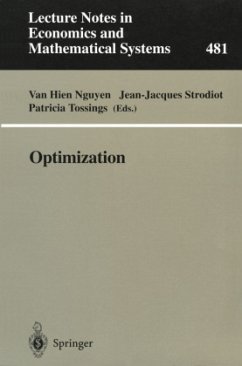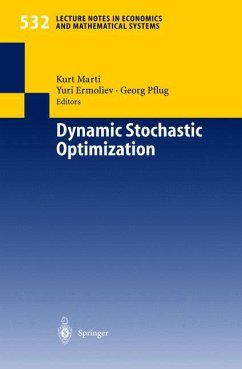
Stochastic Two-Stage Programming

PAYBACK Punkte
20 °P sammeln!
Stochastic Programming offers models and methods fordecision problems wheresome of the data are uncertain.These models have features and structural properties whichare preferably exploited by SP methods within the solutionprocess. This work contributes to the methodology fortwo-stagemodels. In these models the objective function isgiven as an integral, whose integrand depends on a randomvector, on its probability measure and on a decision.The main results of this work have been derived with theintention to ease these difficulties: After investigatingduality relations for convex optimization pr...
Stochastic Programming offers models and methods fordecision problems wheresome of the data are uncertain.These models have features and structural properties whichare preferably exploited by SP methods within the solutionprocess. This work contributes to the methodology fortwo-stagemodels. In these models the objective function isgiven as an integral, whose integrand depends on a randomvector, on its probability measure and on a decision.The main results of this work have been derived with theintention to ease these difficulties: After investigatingduality relations for convex optimization problems withsupply/demand and prices being treated as parameters, astability criterion is stated and provessubdifferentiability of the value function. This criterionis employed for proving the existence of bilinear functions,which minorize/majorize the integrand. Additionally, theseminorants/majorants support the integrand on generalizedbarycenters of simplicial faces of specially shapedpolytopes and amount to an approach which is denotedbarycentric approximation scheme.












